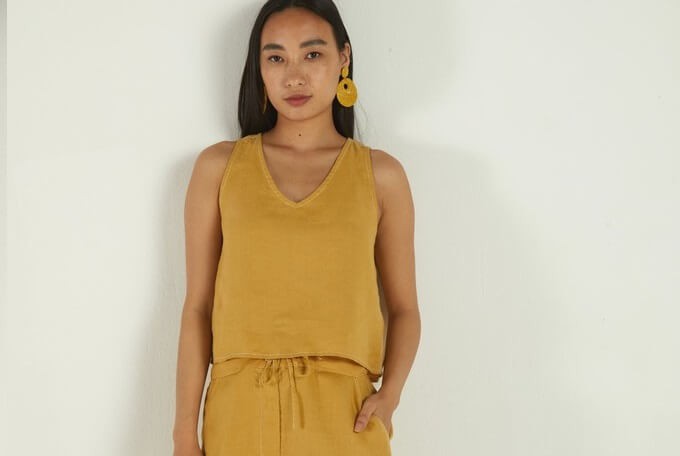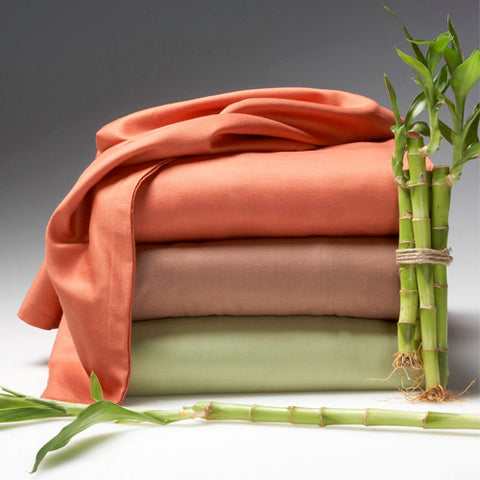Top News On Deciding On Bamboo Clothing
Wiki Article
Why Is Hemp More Biodegradable, Durable And Regenerative Than Cotton?
Hemp, due to its natural properties and way that it is grown is believed to be more durable and renewable than cotton. Here's why- Biodegradability-
Natural Fibers - The hemp's fibers can be biodegradable. Clothing and textiles made from hemp decompose over time. This means they return to nature without leaving any residue. It is a striking contrast to synthetic fibers such as polyester that can take a number of years to degrade.
The absence of synthetic additives Hemp textiles typically don't contain chemicals or synthetic additives that can hinder biodegradability. Contrary to cotton textiles which might have chemical compounds made from synthetic materials (such as dyes or finishers) which can hinder biodegradation, hemp fibers aren't.
Durability-
Hemp is known for its durability and strength. Hemp clothing, textiles, and other items are more durable than cotton. That means hemp clothes will last longer, even before showing indications of wear and wear and tear.
Less Prone to PillingLess prone to pilling Hemp fabrics are less susceptible to pilling (the formation of tiny fuzzy balls on the surface of the fabric) in comparison to cotton. This feature contributes greatly to the durability and quality of hemp fabric.
Regenerative Agriculture-
Soil health Hemp cultivation can be regenerative when it is practiced sustainably. Hemp is a plant with a deep root structure that prevents soil erosion and compaction. It can also enhance soil health by aerating and increasing the activity of microbial organisms. This regenerative component will help keep the soil healthier for future crop production.
Low Environmental Impact Sustainable hemp cultivation methods generally use low levels of pesticides and herbicides to limit environmental harm. Cotton farming, which is dependent on synthetic chemicals may result in soil degradation and water pollution.
Water Efficiency-
Hemp typically requires less water to grow than cotton. Hemp's drought-resistant nature permits it to thrive even in areas with low water levels or rain. It is a water-efficient option, especially for regions that are resource-limited.
Crop Rotation Hemp is a good choice to incorporate in crop rotation systems that can enhance the overall health of soils and decrease the possibility of soil loss and build-up of diseases. Crop rotation isn't as prevalent in traditional cotton farming.
Hemp is adaptable and can be used in many different ways, including for textiles, clothing or construction materials. Hemp is a flexible crop that can be used to support a variety of industries using environmentally sustainable and regenerative techniques.
While hemp does offer these advantages, it is essential to be aware that both cotton and hemp can be produced sustainably or not, based on the farming practices used and the processes used. The environmental benefits of hemp could be enhanced by selecting products that are made ethically and with ecofriendly practices. In the same way, choosing organic cotton products can mitigate the environmental issues associated with conventional cotton production. See the best hemp clothing url for site info including t shirt hemp, patagonia volley shorts, hemp polo shirts, hemp work pants, hemp and cotton fabric, hemp fabric by the yard, 100 hemp t shirt, womens hemp clothing, hemp golf shirts, hemp swimsuit and more.

How Do Hemp Fibers Help In Carbon Sequestration And Sustainability, As Well As The Crop Rotation?
Hemp fibers are an environmentally-friendly option for textile and agricultural production. They can help with the sequestration of carbon and sustainability.
Hemp develops quickly and matures within 70-120 day, depending on variety and conditions of growth. In order to speed up their growth hemp plants absorb carbon dioxide from the atmosphere as part of photosynthesis. This carbon uptake has the potential to significantly lower CO2 levels through the sequestration of it.
Hemp is popular for its large amount of biomass. The thick foliage and the tall stalks of hemp yield massive amounts of organic matter. If it is used in the soil for a variety of reasons, it could help to increase the quantity of organic carbon.
Sustainability:
Hemp cultivation requires fewer synthetic pesticides. It also uses fewer herbicides. Its natural resistance to many pests and diseases decreases the need for chemical intervention. Organic hemp farming in particular is a sustainable farming method by avoiding synthetic chemicals.
Water Efficiency- Hemp is a relatively water-efficient plant that thrives with minimal irrigation, especially when compared with more water-intensive crops such as conventional cotton. Therefore, it is more sustainable for regions that have limited water resources.
Hemp roots are long and help improve soil quality. The hemp's roots help to prevent soil erosion, by stabilizing the structure of soil and reduce runoff. Hemp farming may increase soil microbial activity, thereby improving the fertility of soils and the cycle of nutrient.
Hemp is a good crop to incorporate into rotational systems. Crop rotation is the practice of alternating crop varieties in a field over time. This practice can break the cycle of diseases and pests, reduce soil depletion and improve the soil's structure. Hemp’s role in crop rotating can contribute to sustainability.
Crop Rotation
Diversification- Hemp can be incorporated in crop rotation systems along with other crops, such as legumes vegetables, grains or grains. Diversification is essential for maintaining soil health, reducing the threat of pests and illnesses that are unique to certain crops, and promoting balanced nutrient cycle.
Hemp's deep root system allows it to penetrate soil to improve aeration and reduce compaction while also increasing the amount of water that is absorbed. After a hemp crop the improved soil structure helps subsequent crops in the rotation.
Summary- Hemp fibers are beneficial to soil quality, they are suitable for crop rotation and improve the sequestration of carbon as well as sustainability. They do this through rapid growth, biomass, a low use of chemicals as well as their water efficiency and ability to work with crop rotation methods. The hemp fibers produced by this sustainable, regenerative farming method are a great option for making textiles. View the most popular hemp clothing examples for website advice including jungmaven clothing, hemp swimsuit, hemp sportswear, hemp and cotton fabric, hemp pants, afends jesse dress, hemp garments, hemp clothing near me, hemp active wear, hemp bathing suit and more.

What outdoor activities do bamboo-based clothes causing a ruckus?
Because of its blend of comfort, performance and environmental sustainability, bamboo-based clothes have changed the way we do outdoor sports. Here are some outdoor pursuits that bamboo-based clothes are making huge strides: hiking-
Why? Bamboo clothing has outstanding moisture-wicking properties and keeps the hikers dry and comfortable while hiking. The fabric's breathability assists in regulating body temperature during long hikes in varying weather conditions. Bamboo fabric is soft and helps reduce irritation.
Trail Running
The properties of moisture wicking of bamboo clothing are crucial for trail runners, who are in tough conditions. This keeps runners cool while keeping them from discomfort.
Camping-
Bamboo clothing is ideal for camping as it's comfortable to wear all throughout the day. Its softness and the ability to wick moisture, will ensure that campers stay warm and dry at the campsite, no matter if they're building tents, cooking or sitting in front of the fire.
Backpacking-
Why- Backpackers benefit from lightweight, moisture-wicking clothing that can handle various conditions of weather. Bamboo clothing is a great option for long-distance backpacking trips because of its comfort, versatility and ability to regulate the body's temperature.
Climbing-
Why climbers like bamboo clothing due to its elasticity and ease of movement. The moisture-wicking qualities of bamboo clothing ensure that climbers are dry and comfortable during physical exertion as they climb. Bamboo's softness reduces the chance of skin irritation caused by harnesses and equipment.
Mountain Biking
Mountain bikers must wear clothing that is water-resistant and breathable so that they can remain comfortable on their long rides. The bamboo clothing's ability regulate temperature, as well as manage humidity, is helpful to bikers on challenging trails.
Yoga and Outdoor Fitness
Why? Bamboo has a softness that is perfect for outdoor yoga activities and its moisture-wicking abilities. It provides a broad range of motion for the yogi and makes it easier for them to stay in a comfortable position while working out.
Fishing-
Why do fishermen prefer bamboo clothes for their comfort and ability to wick away water, particularly after spending many hours on the water. Bamboo regulates body temperature and keeps wearers dry and minimizes discomfort and irritation.
and Adventure Travel and Adventure Travel
Whywhy Bamboo clothes are ideal for those who want to explore different climates and environments. The versatility, comfort, and fast drying properties make it an the ideal choice for adventure travel when space and weight are limited.
Sustainability-Focused Activities-
Whydo outdoor fans who value sustainability and eco-consciousness opt for bamboo-based clothes due to bamboo's low environmental impact. Bamboo clothing is suitable for those who seek to lessen the environmental impact of outdoor activities.
In summary, bamboo-based clothing is transforming many outdoor activities, providing convenience, humidity management, temperature control and environmental sustainability. Its versatility makes bamboo-based clothing suitable for various outdoor pursuits. Read the best bamboo clothes for website tips including bamboo cotton pajamas, bamboo boxer shorts, short bamboo, bamboo leggings, mens bamboo clothing, bamboo trousers women, ladies bamboo pants, bamboo cotton shirts, shakuhachi clothes, short sleeve bamboo pajamas and more.
